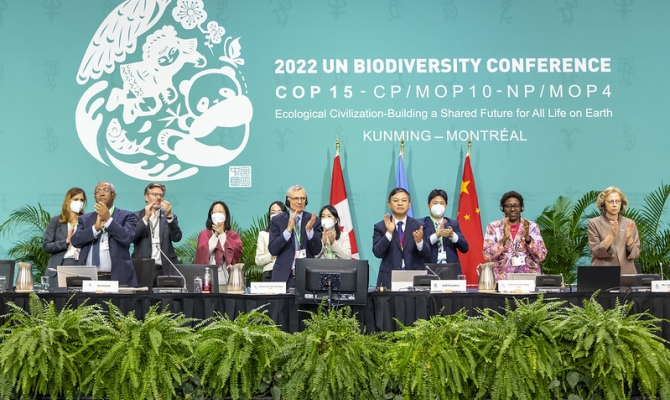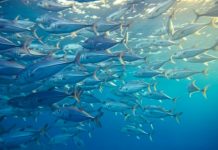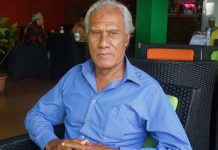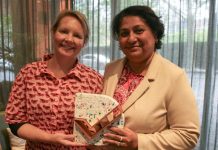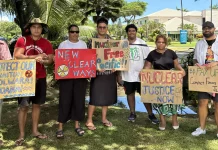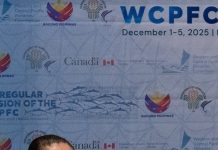Opinion by Sefanaia Nawadra
The adoption of the Global Biodiversity Framework (GBF) in Montréal Canada in 2022, to guide global action on nature through to 2030, was a historical occasion. It provides the global framework against which we plan our regional and national actions.
At Montréal’s Palais des Congrès, more than thirty delegates from Pacific Island countries stood amongst delegations from 188 governments to applaud the landmark agreement. The conditions were far from ideal. The freezing temperature in Canada made the work for Pacific delegations who had gathered there for more than two weeks quite difficult. The world was also just getting back to normal post COVID-19 with some of the restrictions still in place. I still remember the hassle of COVID testing, every day.
But that wasn’t all, with the GBF secured only a few days from Christmas, a snowstorm that followed shut key airports in Canada which meant some Pacific officials never made it home for Christmas that year. Such was the sacrifice they made, however, for the cause, a much-needed framework that took many years to develop and negotiate, in which Pacific countries played an active role in the process.
The stakes then were high, just as they are today.
Biodiversity, and humanity are members of one created household that, is in deep trouble as the planet suffers a dangerous decline in nature as a result of human activity. Science and statistics do not lie and tell of the unprecedented loss of species, the ongoing degradation of natural landscapes, and our once fertile land and ocean and its biodiversity are dying the death of a billion cuts.
Pacific countries and Small Island Developing States (SIDS) are not immune to the destruction.
Our environment contains precious and unique biodiversity, and we have stewardship over large proportions of global ecosystems, including about 30% of all oceans and seas within national jurisdiction yet our countries are faced with accumulating challenges for building and ensuring sustainable and resilient island futures. Invasive species are a lead cause of species extinctions on islands and have many negative impacts for our biodiversity, health and economies. We can go and on about the devastating impacts, but the picture is quite clear. In the words of UN Secretary-General, Antonio Guterres, he summed it quite aptly: “With our bottomless appetite for unchecked and unequal economic growth, humanity has become a weapon of mass extinction. We are treating nature like a toilet. And ultimately, we are committing suicide by proxy.”
This was in 2022. We knew that the planet needed a framework to address biodiversity loss, restore ecosystems and protect indigenous rights. The Kunming-Montreal Global Biodiversity Framework (GBF) was the answer. But that was only the beginning. The work continues.
This week, Pacific delegates are making their way to Colombia for COP16, being touted as the ‘first implementation COP’. They will join various actors – from governments to non-state actors like indigenous communities, youth groups, businesses, financial institutions and civil society – who will come together to share progress to date and explore plans for the future.
The One Pacific Voice, facilitated by SPREP as the mandated inter-governmental organisation of the Pacific Island countries to protect the Pacific environment, will again be very strong in amplifying our key messages.
Pacific countries for instance will push for the implementation of the GBF to continue to uphold that the Pacific islands region faces unique biodiversity conservation and management issues due to geographic isolation, limited land areas, and vast ocean spaces. The special circumstances of SIDS is integral to action under the Convention, and the meeting can be assured of a united voice from all SIDS to ensure this continues to be central for implementation of the GBF.
Our One Pacific Voice will also argue that the successful implementation of the GBF, and other work under the Convention, will require effectively harmonised, coherent action, mainstreamed across sectors and other existing agreements and recognising the interconnectivity of ecosystems from highlands to high seas, for sustainable and resilient futures for all peoples and planet.
All this work of course requires funds and adequate resources. These are essential to monitor, advance resource mobilisation (in particular how the implementation will be financed), and finalise the multilateral mechanism on fair and equitable Access and Benefit Sharing (ABS) from the use of digital sequence information on genetic resources. Like all things in life, and especially when it comes to negotiations of this nature, there is no guarantee that Pacific nations will get everything we want.
Suffice to say, there is a lot of work to be done but COP16 provides a critical step in our journey towards achieving our goals and aspirations to conserve our unique Pacific biodiversity and to stop the dangerous loss of biodiversity throughout the world. The urgency to improve the management of our rich island and marine biodiversity and the ecosystems that support them cannot be understated.
We must act now, so that the historical occasion that was the GBF in Montreal is not confined to just mere words that lack meaningful impacts on the ground, especially for the Pacific communities we serve.
Sefanaia Nawadra is the Director General SPREP. He holds a Bachelor’s Degree in Environmental Engineering from the University of Canberra and a Master of Environmental Management from the Imperial College, University of London.






